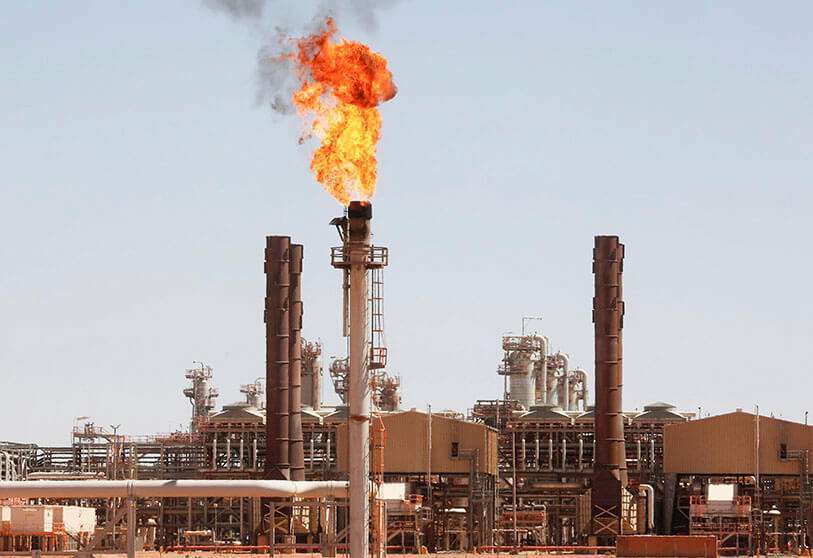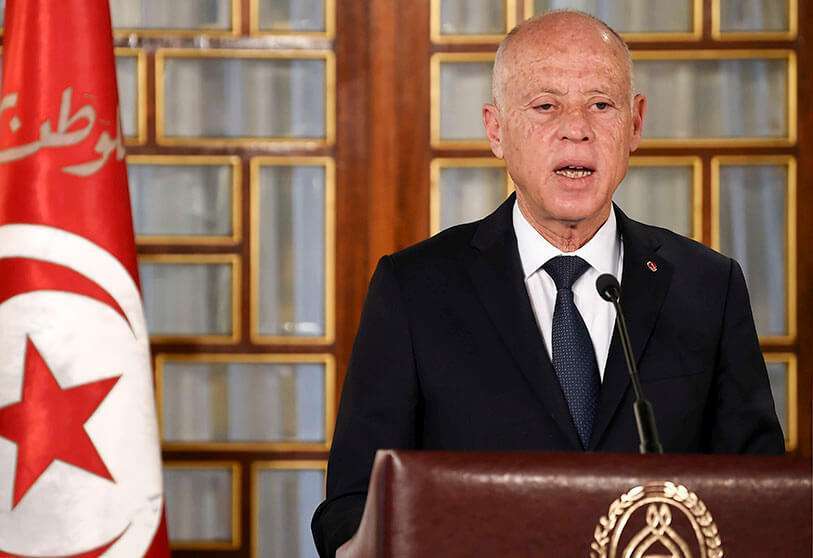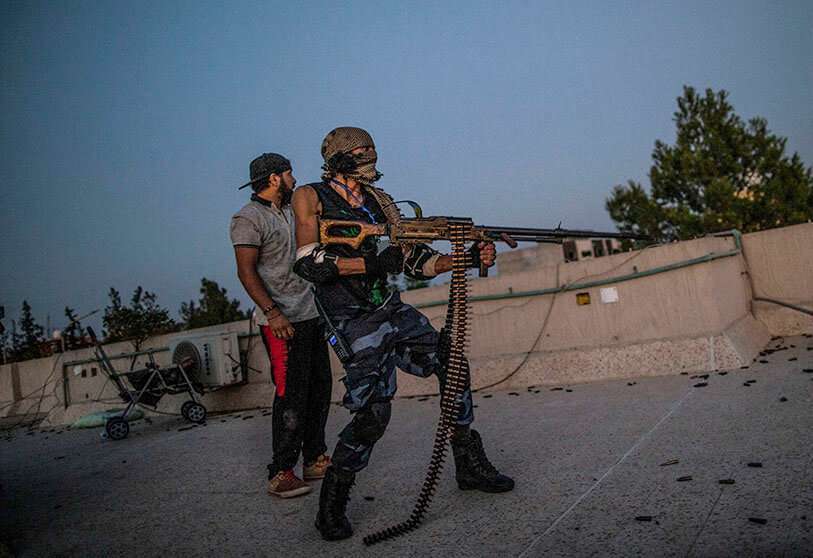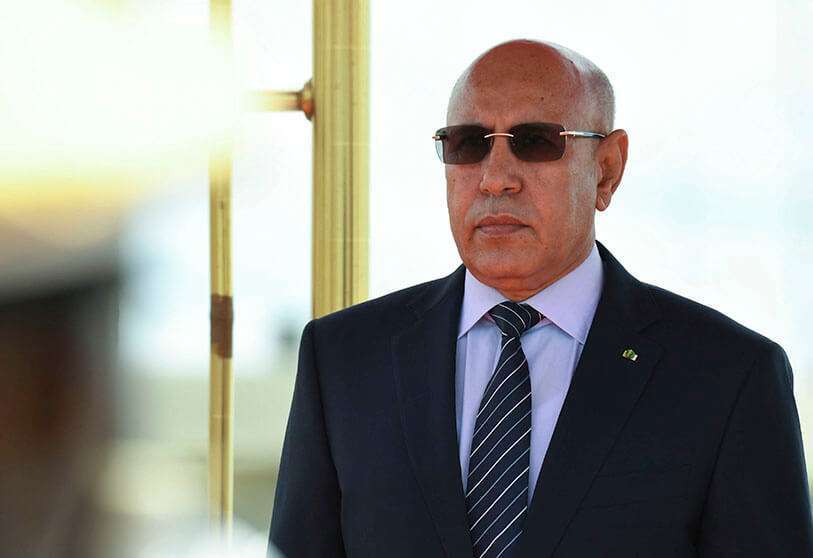Crisis sanitaria versus crisis de legitimidad en el Magreb

The coronavirus pandemic has shown us that everyone's fate depends on their own behavior. However, this maxim has taken on new dimensions in regions such as the Maghreb, where countries have to deal with some pre-pandemic issues. The consequences of this health crisis have highlighted the crisis of legitimacy being experienced in some countries of the Maghreb, a region made up of the territories of Mauritania, Morocco, Algeria, Libya, Tunisia and Western Sahara. The Foundation for Strategic Research (FRS) has carried out a study entitled "The Maghreb facing COVID-19", in which they analyze the repercussions that this pandemic could have on the political, economic and social system of the countries that are part of this region.
The Tunisian economic crisis, the unstable situation in Libya, caused by a war that seems as if it will never end, and the continuing protests in Algeria, among other events, have highlighted the spirit of the Arab Spring. However, the study carried out by the FRS considers that the post-pandemic period will be marked by "a disarticulation of the Maghreb scenario in a world that has become multipolar", and in which China has proclaimed itself the winner, by making health diplomacy the main actor in its foreign policy.
The governments of the countries that make up the Maghreb have taken a series of measures in recent weeks aimed at reducing the economic and social impact of this pandemic. Furthermore, it should be considered that the health infrastructures of some of the Maghreb countries are not prepared to deal with a health crisis of this nature. This means that those with greater purchasing power are more able to survive than those living in the informal economy. The research carried out by the FRS considers it necessary to ask whether the "historic and exceptional" relationship between Europe and the Maghreb countries could be replaced in favor of a new world center led by China.
The political, economic and social crisis has become a constant in recent months in Algeria. Instability continues to be the country's undisputed protagonist, one year after the protests forced the then President Abdelaziz Bouteflika to resign. To this situation we must add the collapse of oil prices or the fragility that defines the new government. In addition, the health crisis caused by the coronavirus has raised the spectre of food shortages. "Commodities such as flour or milk are the object of price speculation. The cost of masks fluctuates according to stocks, and illegal tax gatherers take advantage of the partial stoppage of public transport," they warn in the study carried out by the Strategic Research Foundation.
Faced with this situation, Algeria's current president, Abdelmadjid Tebboune, has tried to restore his regime's credibility by imposing several health and social measures. "These measures have been taken in a country that has 1.9 hospital beds per 1,000 inhabitants, compared to 13.4 in Japan," the report underlines. However, researcher Saïd Belguidoum sees this health crisis as a "gift from heaven to Algiers", which now has the opportunity to arrest some of the leaders of the riots that have hit the country in recent months and which have been relegated to the background after the outbreak of COVID-19.

The Moroccan monarchy has had to face several challenges during the last decade, such as the Arab springs in 2011, the Al-Hoceima demonstrations in 2017 or the health crisis caused by the COVID-19 virus. "Rabat is leading a diplomacy based on the notion of exemplarity. It is moving northwards, trying to impose itself as a credible regional interlocutor, and southwards, consolidating its strategic presence on the African continent," the study points out.
For this reason, Morocco was one of the countries in the African continent that was able to act most quickly against the coronavirus. "King Mohammed VI's strategy was dual," the researchers said. Firstly, Mohamed VI knew how to exercise his authority to force the country's society to comply with the rules of containment. And secondly, the Moroccan leader was "able to transform the health threat into a national cause". The fact that civil society has been involved in this process and has decided to help the most vulnerable has led the International Monetary Fund (IMF) to grant a loan of three billion dollars to Rabat. According to the report drawn up by the FRS, "this loan is seen by the Chinese official media as a commitment by international bodies in favour of the Kingdom".
Even so, the health crisis which is currently hitting the planet has highlighted the fragility of the Moroccan economy, which is largely dependent on the informal sector. In the midst of this situation of instability, political Islamism has found a place in Morocco. After the announcement of the closure of the mosques, the Salafist preacher Abu Naïm called on the resistance to shout "Allahou Akbar" from the roofs of the houses. This event led to several protests and demonstrations on the Tangier-Tetouan axis, according to this report. Tangier is one of the strongholds of the Moroccan Salafist movement and this is demonstrated by the fact that in the general elections of 2016, this city ran a Salafist among its candidates. The coronavirus has forced a change in some of the rules of Islam, and the closure of mosques has been one of the consequences of this health crisis.
"Tunisia has returned to state voluntarism," stresses the report by the Strategic Research Foundation. Political uncertainty and the leadership of President Kaïs Saïed have brought Tunisia to the brink. According to the research carried out by FRS, "there are three edges that form the cornerstone of the fight against COVID-19". This triangle of authorities is formed by the President himself, Prime Minister Elyes Fakhfakh and the country's civil society. While the Prime Minister has taken it upon himself to reorganize the state apparatus and correct the mistakes made during the first weeks, in which groups such as pensioners were condemned to forgetfulness, the fear of poverty has led civil society to go out into the streets. "The epidemic is awakening the social divide in Tunisia and shows the weakness of a state that is struggling to organize the distribution of emergency aid, some 50 million euros. The endless queues to receive subsidies are sometimes used by citizens carrying the pathogen who, for lack of means of subsistence, join the crowd to live (or survive) from one day to the next," the report explains.

Almost nine years after Muammar Gaddafi's death, uncertainty and instability remain the main protagonists in the Libyan conflict. Since then, the country has been divided between the internationally recognized National Accord Government (NAG), backed by Turkey, and the Libyan National Army (LNA), based in the east of the country and supported by Egypt and the United Arab Emirates. UN Secretary-General António Guteres urged the parties involved in the conflict to agree to a cessation of hostilities to address the COVID-19 pandemic.
Although both parties initially accepted this ceasefire, it has never been respected. Attacks between the two sides continue to be the main focus of attention in Libya's skies and on its soil. All this has brought the medical sector to the brink of the abyss. "Patients with COVID-19 had to be evacuated from Independence Hospital (formerly al-Khadra) because of the bombing. Water and electricity cuts continue to worsen the living conditions of the population, especially the elderly," warns the FRS report.
"Researchers and representatives of Libyan society fear that the population will pay dearly for the fratricidal struggle between East and West, authorities whose ability to react to the virus was based on the idea that containment was useless because they were already confined in Libya," the report adds, lamenting that in the Maghreb, the case of Libya remains "the most worrying".

The coronavirus pandemic took Mauritania by surprise. The country's government made some mistakes at the beginning of the crisis, according to the FRS investigation. However, President Ould Ghazouani subsequently announced the mobilization of more than $64 million to purchase essential medicines and equipment to address this health crisis. In addition, a support plan was launched to support pastoralism, the main livelihood for hundreds of the country's citizens. "Nouakchott is taking simple and pragmatic steps to anticipate the global crisis," the report says.
At the same time, the Mauritanian Army has increased surveillance along the river that runs through the country to prevent illegal activities, such as the transport of illegal migrants who, according to this research, are often Mauritanian citizens trying to reach their homes. "In the cities, the implementation of contention measures is causing impatience among economic actors, including informal ones, who aspire to resume their activities. Some are desperate, believing that the State is exaggerating health standards in view of the number of cases observed. Mauritanians confined to a hotel in Nouakchott are on (temporary) hunger strike to protest against the quarantine," explain the researchers responsible for this report.

Although the Maghreb is holding out and the pandemic seems to be contained, the crisis of legitimacy that is plaguing much of the region's countries has been exposed through this pandemic. The health crisis caused by COVID-19 has highlighted the need to develop policies that take into account the importance of the informal sector.
However, the question now is how to get the region back on track, according to this report. On the one hand, the civil war in Libya and the low impact of the pandemic in Mauritania mean that these two regions are not affected by the measures that have been implemented in other countries. Meanwhile, in Algeria, the state needs oil to balance its budget in order to overcome the resulting economic crisis. Something similar will happen in Morocco, where the economy will also suffer the consequences of this pandemic, following the reduction of foreign direct investment or the drop-in sales of new vehicles. In this scenario, the role played by Tunisia should not be forgotten either. Over the last few days, more than sixty civil society actors have drawn up a letter expressing their concern about this situation. "We are aware that there is little or no margin for maneuvers in the state budget. And yet the state must come to the aid of all its economic actors". How are the Maghreb countries going to deal with the upcoming economic and political crisis?
Beyond these two areas, the health sector is emerging as a new vector of power in the region. While the West has spent much of its time dealing with the impact of the pandemic on its own countries, other nations such as China have exercised their influence in the region by sending medical teams. And at the same time, according to this report, Rabat has launched an initiative with Senegal and Côte d'Ivoire to provide a joint response to the threat of COVID-19. This initiative would involve developing health diplomacy, without a Western presence, by strengthening multi-sectoral partnerships. The future of the Maghreb depends on the decisions taken by political leaders in a region where society is raising its voice to regain the prominence lost in recent years.







